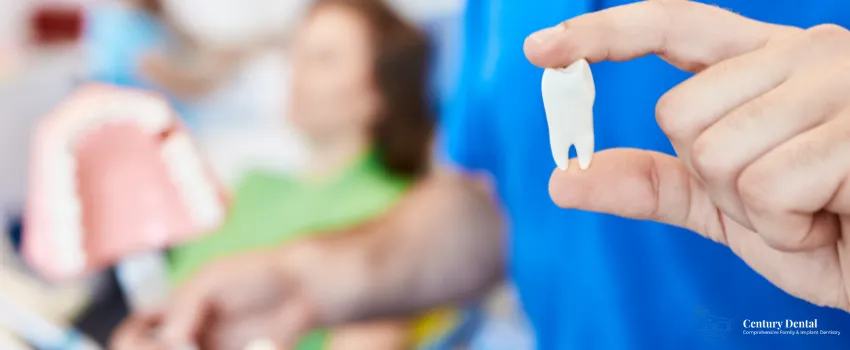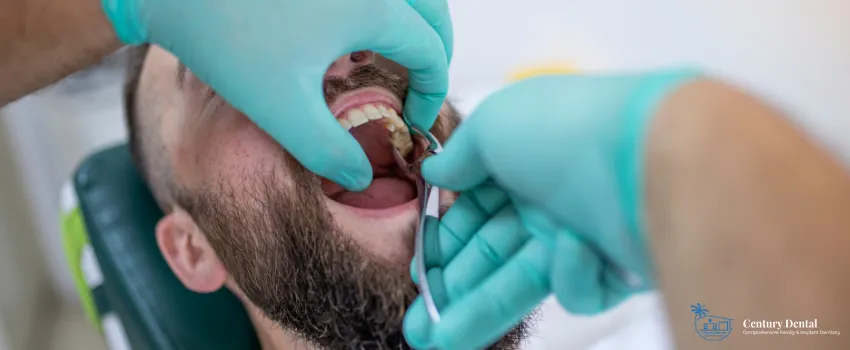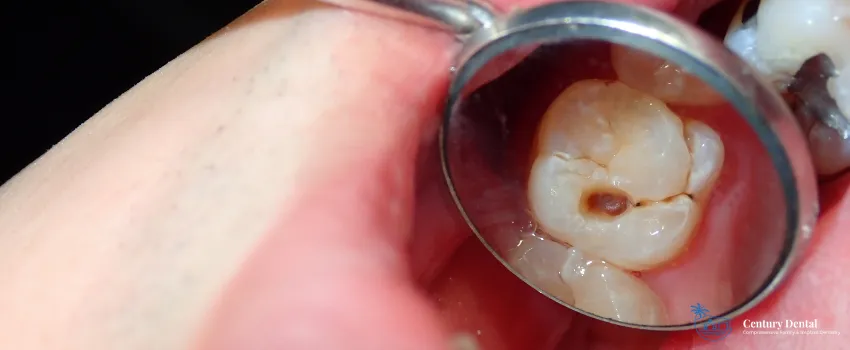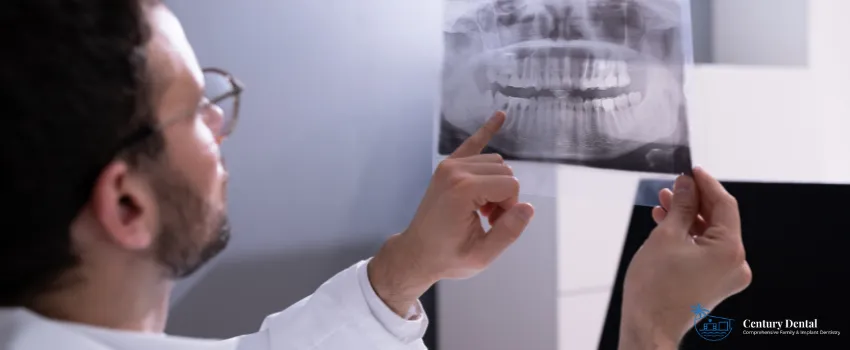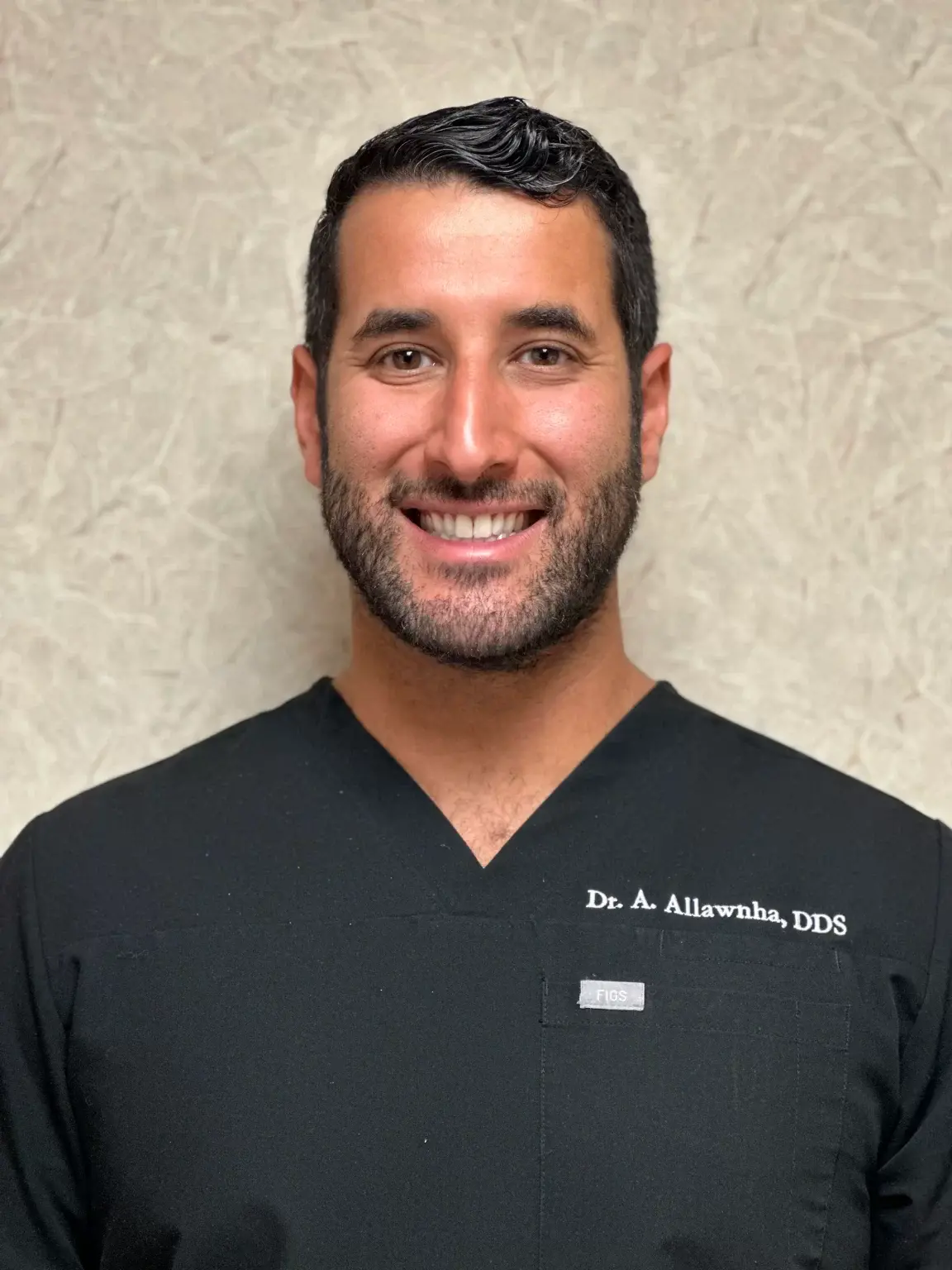The realm of dental health is vast, with several procedures tailored to address distinct issues. Tooth extraction is a procedure that holds great importance, given its potential to halt the progression of dental ailments. By getting into the core reasons behind tooth extractions, individuals can better appreciate the necessity of this procedure. Read on and learn more about the various circumstances that warrant tooth extraction, such as severe tooth decay, gum disease, and overcrowding.
What is tooth extraction?
Before we discuss the reasons why tooth extraction is indispensable, it’s important to understand the tooth extraction procedure first. Tooth extraction, as the name suggests, is the removal of a tooth from its socket in the bone. The procedure can be categorized into two main types: simple extractions and surgical extractions.
The tooth extraction procedure isn’t as daunting as it seems. With advancements in dental technology and anesthesia, the process has become fairly straightforward and less discomforting. It commences with a thorough examination of the tooth to be extracted, followed by numbing the area around the tooth to mitigate any discomfort. The tooth is then loosened and removed with specialized tools, ensuring a smooth extraction process.
What are the benefits of tooth extraction?
Tooth extraction is considered important for various reasons, often depending on the specific dental issue at hand. Here are two benefits of tooth extraction that underline its importance:
1. Promoting Better Oral Health
Tooth extraction can be a cornerstone in the journey towards better oral health. By addressing the root cause of dental woes, be it severe decay, infection, or overcrowding, extraction sets the stage for a healthier oral cavity. It’s a proactive measure to prevent further complications, fostering a conducive environment for oral health to flourish.
2. Enhancing Aesthetic Appeal
Aesthetic appeal holds a significant sway in today’s visual-centric world. A well-aligned set of teeth not only boosts one’s confidence but also paints a picture of good health. Post extraction, individuals can explore a range of cosmetic procedures to enhance the appearance of their smile, making a lasting impression wherever they go.
Why is tooth extraction necessary?
The necessity of tooth extraction varies from case to case and depends on several factors, such as the condition of the tooth, the severity of the infection or damage, and other dental or medical considerations. Here are some common reasons why tooth extraction may be considered necessary:
1. Overcrowding
One of the predominant reasons why tooth extraction is deemed necessary is to alleviate overcrowding in the mouth. When there’s an excess of teeth or the teeth are too large for the mouth, it can lead to overcrowding, making it difficult to maintain oral hygiene. Overcrowding can also impede the ability to chew properly, leading to digestive issues over time.
Moreover, overcrowding can be a roadblock in the quest for that picture-perfect smile. It often leads to misaligned teeth, which not only impacts one’s appearance but can also be a precursor to other dental issues. By opting for tooth extraction, individuals pave the way for orthodontic treatment, which aims to correct the alignment and spacing of teeth.
2. Halting the Progression of Infection
Infections can be a menacing foe to dental health. When a tooth becomes infected, it can lead to severe pain and other complications if left untreated. The tooth extraction procedure often comes into play when other treatments, such as antibiotics or root canal therapy, fail to resolve the infection.
Furthermore, an untreated infection can spread to other areas of the mouth and even other parts of the body, posing a serious health risk. Extraction, in such scenarios, acts as a gatekeeper, halting the progression of the infection and preventing further complications.
3. Addressing Gum Disease
Gum disease is a stealthy culprit behind many dental woes. In its advanced stages, it can lead to the loosening of the teeth as the supporting bone structure is eroded. In such cases, tooth extraction might be recommended to prevent further damage and to pave the way for effective treatment of gum disease.
The onset of gum disease can be quite insidious, but its repercussions are far-reaching. It’s imperative to address gum disease at the earliest to prevent a cascade of dental issues, with tooth extraction being a viable step towards restoration of oral health.
4. Mitigating the Risk of Tooth Decay
Tooth decay is a common adversary in the realm of dental health. When decay advances to a severe stage, it can infiltrate the pulp of the tooth, leading to infection and severe pain. At this juncture, if the decay is too extensive for a filling or a root canal, tooth extraction becomes a necessity to alleviate discomfort and prevent further complications.
It’s akin to a domino effect; one compromised tooth can set off a chain of dental issues if not addressed promptly. Extraction steps in as a damage control measure, halting the ripple effect of tooth decay in its tracks.
5. Wisdom Teeth Troubles
The tale of wisdom teeth is a well-versed one in dental circles. These late bloomers often find themselves in a tight spot, quite literally, as they struggle to find enough space to emerge properly. This lack of space can lead to impaction, where the wisdom teeth are unable to break through the gums fully, leading to pain, swelling, and infection.
Wisdom teeth extraction is a common practice to alleviate these issues and to prevent potential complications down the line. It’s a proactive approach to nip potential problems in the bud, ensuring a smoother journey toward optimal oral health.
Key Takeaway
The essence of tooth extraction lies in its potential to thwart the advancement of dental issues that could potentially morph into severe ailments. Understanding the circumstances under which extraction is advised can demystify the procedure, making it less daunting.
Now, you can make informed decisions about your dental health, ensuring that you take timely action to prevent complications. Whether it’s to alleviate pain, prepare for orthodontic treatment, or prevent the spread of infection, tooth extraction serves as a crucial intervention in maintaining overall oral health.
Achieve a beaming smile and fight off oral health issues with Century Dental!
Ready to take a step towards better dental health? As a reliable South Pasadena dentist clinic, we have been providing clients with healthy and beautiful smiles without fail. Schedule a consultation with Century Dental today to explore the right dental procedures for you.

